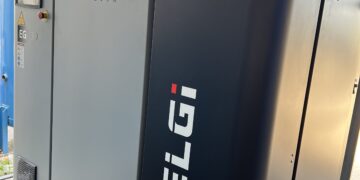Chemistry industrie company SABIC announced Beiersdorf’s future use of certified renewable polypropylene (PP) from its second generation portfolio including bio-based materials in the skincare company’s cosmetics packaging. The new packaging products will be introduced in the market in 2021 and replace fossil-based virgin PP.
“The use of renewable raw materials in our product packaging represents a major lever for us to reduce our carbon emissions and improve our ecological footprint,” says Michael Becker, Head of Global Packaging Development at Beiersdorf.
As part of its CARE BEYOND SKIN Sustainability Agenda with ambitious targets to be implemented by 2025, Beiersdorf wants to make its packaging 100 percent refillable, reusable or recyclable, increase the share of recycled material in plastic packaging to 30 percent and reduce the use of fossil-based virgin plastic by 50 percent (compared to 2019).
The company’s certified renewable polymers are based on a mass balance approach in compliance with the widely recognized International Sustainability & Carbon Certification (ISCC PLUS) scheme. The mass balance is determined to allocate the renewable content used in production and conversion of the plastic material to the ultimate application. This allows brand owners to highlight and quantify the sustainable choice consumers can make by purchasing end products packaged in renewable plastics. The ISCC Plus accreditation verifies that the mass balance accounting follows predefined and transparent rules. In addition, the certification also provides traceability throughout the partners’ entire supply chain from the feedstock to the final product.
Moreover, a cradle-to-gate lifecycle analysis has confirmed the sustainability elements of SABIC’s renewable materials. From sourcing the raw feedstock to producing the polymers, each ton of the company’s bio-based PP and PE resin reduces CO2 emissions by an average of 4 kg as compared to fossil-based virgin alternatives, while at the same time cutting fossil depletion by up to 80 percent.

















